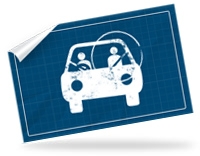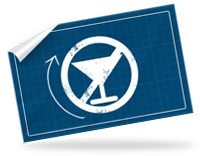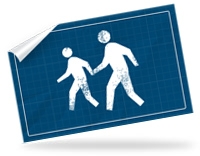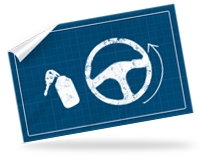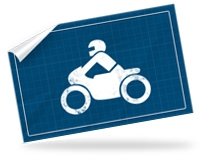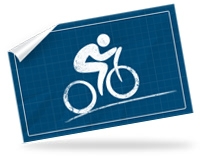Keeping each other safe on the roads is about developing permanent vigilance and taking constant care.
News
Latest news, speeches, media alerts and publications.
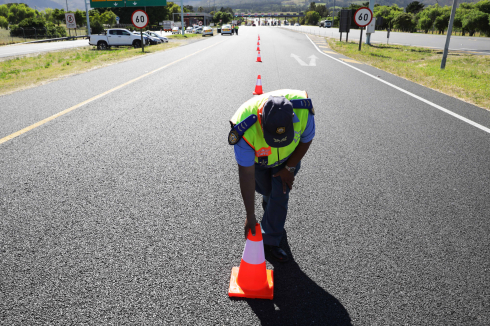
Results of Provincial Traffic Services’ operations; Alcohol and roads don’t mix 4 to 10 July 2022 / 11 July 2022
Driving under the influence of alcohol has re-emerged as a serious risk to road safety in the Western Cape. This week, 73 motorists were arrested for driving under the influence.
I joined Provincial Traffic Officers during the province’s integrated roadblocks in the West Coast last week and the Garden Route in the week under review to ensure road users comply with the law and that our roads and passengers are safe.
During the roadblocks, I found that most motorists were compliant. It is always the few exceptions that bring danger on our roads, and that is why the Western Cape Provincial Traffic Services continues to run 24/7 operations across the province.
Alcohol and roads don’t mix. Never drink and drive or drink and walk. Even small amounts of alcohol can affect your judgement as a road user. If you are convicted of driving under the influence of alcohol, you will have a criminal record. Moreover, you could take the life of yourself and/or another person.
Western Cape Provincial Traffic Services implemented a total of 214 integrated roadblocks, vehicle check point and speed control operations across the province in the week of 4 to 10 July 2022, and 29 660 vehicles were stopped and checked.
A total of 229 speeding offences were recorded and 6 525 fines were issued for various traffic violations ranging from driver to vehicle fitness.
Forty-five vehicles were impounded and 42 were discontinued for unroadworthiness.
Speeding is a serious concern. The faster you drive, the less time you have to respond to an emergency and the more space you need to stop to avoid a crash. Speeding is irresponsible and dangerous. The highest speeds recorded this week were as follows:
- 165 km/h in a 120 km/h zone
- 144 km/h in a 100 km/h zone
- 109 km/h in a 80 km/h zone
- 94 km/h in a 60 km/h zone
National Road Traffic Act and Criminal Procedure Act
A total of 98 arrests were made for the following offences:
- 73 x driving under the influence of alcohol.
- 2 x speeding.
- 4 x reckless and negligent driving.
- 1 x goods overloading.
- 3 x possession of fraudulent documentation.
- 3 x inducing an authorised officer or peace officer to act in conflict with his/ her duty.
- 3 x obstructing or hindering an authorised officer in the execution of his/ her duty.
- 1 x failing to comply with a lawful order from an authorised officer.
- 2 x resisting arrest.
- 2 x failing to furnish information
- 1 x robbery.
- 1 x organising/ taking part in a race/ sport on a public road without permission of the Member of the Executive Council (MEC)/ local authority.
- 1 x operating an un‐roadworthy motor vehicle.
- 1 x not being in possession of a Professional Driving Category P Permit.
Fatalities recorded between 4 to 10 July 2022
A total of 22 crashes occurred in the reporting period, and 24 fatalities were recorded:
- 4 x drivers.
- 1 x fell of vehicle.
- 1 x motorcyclist.
- 11 x passengers.
- 7 x pedestrians.
Alcohol and roads don’t mix
Never drink and drive. Never drink and walk near a road. Alcohol and roads don’t mix. If you have been drinking, make other arrangements to get home. If you are stopped by a traffic law enforcement officer and the officer suspects that you are over the legal limit, you will be arrested on the spot.
According to a study conducted by the Council for Scientific and Industrial Research (CSIR), the cost of crashes in 2015 was almost R143bn – equivalent to 3.4% of Gross Domestic Product (GDP ) in that year, not including the infrastructure costs. Human casualty costs made up 69.35% of the R143bn total; incident costs, 14.9%; and vehicle repair costs, 15.8%.
Human casualty costs comprise hospital costs, emergency medical service costs, funeral costs, and lost earnings through death and disability. Incident costs include on-scene costs (e.g. police and traffic officials having to attend the scene), tow truck costs, and the cost of congestion and delays to other traffic. Vehicle damage costs include the costs of repairing, replacing, and having to rent a vehicle.
Crashes have tremendous socio-economic impacts. Crash victims may be disabled, lose income or lose jobs. Losing a breadwinner could mean living in poverty. Losing a loved one could mean psychological trauma and disruption to family life.
When police and traffic law enforcement officers have to attend to crashes caused by drinking and driving or drinking and walking, they have less time to attend to crime and keep the roads safe. When police and traffic law enforcement officials are tied up in court with cases involving driving under the influence of alcohol, they have less time to keep the public safe. Cases of driving under the influence also slow down the criminal justice system.
Alcohol and roads don’t mix. Never drink and drive.
#AlcoholAndRoadsDontMix.
Media Queries:
Ntomboxolo Makoba-Somdaka
Spokesperson for Minister Daylin Mitchell
Cell: 082 953 0026
Email: Ntomboxolo.Makoba-Somdaka@westerncape.gov.za
More News Posts:
-
-
Last week, 64 people were arrested by Western Cape Provincial Traffic officers on suspicion of driving under the influence of alcohol. During the same period, 15 pedestrians were killed in traffic crashes in our province.
-
On Saturday, 23 March 2024, the Western Cape Government (WCG) officially launched our Easter road safety campaign for 2024.
-
The Western Cape Government is offering FREE ten-point vehicle checks by qualified examiners from Saturday, 23 March to Thursday, 28 March at venues in Cape Town and Drakenstein.

